From Man United To FCUM: Setting Up A Punk Football Club
Heard of Punk Football? FC United of Manchester have...
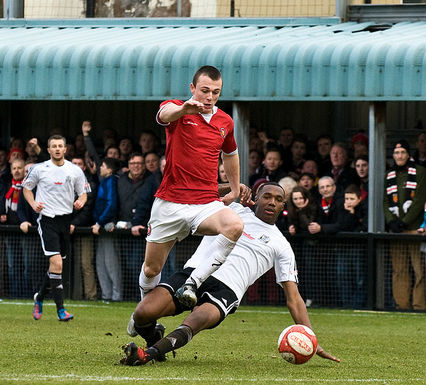
How Manchester United Fans Set Up A Punk Football Club
Woke up this morning feeling fine/ Got punk football on my mind/ We play football the way, the way that we should/Oh yeah/Something tells me I’m into something good.’
Punk Football, the sobriquet adopted by the supporters trust movement, has its own little enclave in Manchester, a thriving alternative model fighting for attention against the privately owned football behemoths of the city.
FC United of Manchester stand as a symbol for anyone who believes that supporters matter in the game, that there are some things more important than results and that clubs should be run in harmony with their community.
The club has its roots in the fans reaction to the Glazer takeover back in 2005. Man Utd’s supporters have a proud history of activism, one best exemplified by their successful campaign in the 1990s to thwart Murdoch’s attempt to take-over the club. There was a hope that the same thing could be done again against Glazer, but it wasn’t to be.
For a section of the fans, the American’s leveraged buyout was the straw-that-broke-the-camel’s-back. Already dispirited with a club that had hiked ticket prices, redesigned the stadium to favour the corporate demographic and all but destroyed Old Trafford’s once legendry atmosphere, it was time for a new way of doing things.
And they found this ‘new way’ in the punk football movement. First conceived by the followers of Northampton Town in 1992, punk football represented the next logical step in supporter engagement, building on the growth of activism in the 1980s. The movement asserted that not only should fans have the right to campaign against their clubs; they also had the right to gain a stake in them too via the medium of the supporters trust.
More…
A Manchester United Fan Unravels The Glazers’ Debt
By the middle of the 2000s, trusts had proliferated across the game. Although not all owned shares, several did. And there were even some, at clubs such as Exeter City, Brentford and York City that had majority control. The trusts themselves, as they continue to be today, were democratically run bodies, in which every member was only entitled to one vote (regardless of how much a person invested).
For the disenchanted followers of Man Utd, here was model that appeared to offer salvation. Punk football enabled supporters to pool their time and resources, creating the kind of infrastructure and financial foundations essential for the running of a football club. But not only could this be applied to existing clubs, the model also provided the opportunity to establish entirely new ones too.
A few years earlier this had been done by the followers of Wimbledon FC following that club’s decision to relocate to Milton Keynes. By 2005, AFC Wimbledon, as the new fan-owned club was named, had already made its way up a few tiers of the non-league system, proving that such an approach could also go hand-in-hand with success on the pitch.
Inspired by examples elsewhere, the punk football enthusiasts at Utd set about starting a club of their very own, one that would be owned by the fans and run in harmony with their wishes. Over a few months in the spring of 2005, a steering committee of 15 people was established, which started to actively recruit members, develop a business plan, look into finding somewhere to play, draw up a constitution and make an application to the FA and the Football League to participate as a new club.
Pretty quickly, FC United of Manchester managed to raise £180,000 from around 3,000 members, an outcome that vastly exceeded their expectations. Although they did get some large investments of around £5,000, most of what was raised came in small amounts. There was even one donation of 50p from a young girl from Bradford which touched everyone involved.
The club’s first game, a friendly at Leigh, took place in mid-July. Under the guiding hand of manager Karl Marginson, FC United took to the pitch in front of just over 2,500 fans and earned a respectable draw. The game ended with an exuberant pitch invasion (long forbidden at Old Trafford) and players being carried off shoulder high, a rare sight in English football following a goalless friendly.
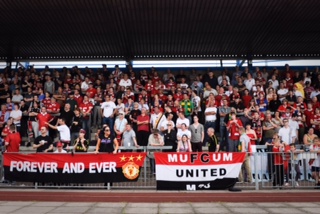
After a handful of promotions during their early campaigns, today FC United ply their trade in the Northern Premier League. Having made the play-offs several times during the past few seasons there is now a sense that it is only a matter of time until the club makes it to the Conference North.
But success on the pitch is only half the story at FC United. For the people behind the club, and many of the supporters, just as important as results is the way in which matters are run.
FC United of Manchester is a democratic entity, accountable to the members. This is not one man’s vision but rather a vehicle for the hopes and dreams of the supporters. And one in which they have a say and a stake.
Allied to this, FC United is also community club. Not only does it work to ensure that local Mancunians can afford to get to a game, the club is also heavily involved in community work, reaching out to the disadvantaged of the city via a variety of different schemes.
By the standards of today, clubs like FC United, AFC Wimbledon and Portsmouth appear as aberrations, quirks when set against the private ownership model that dominates our game. But with a little perspective you can see these punk football revolutionaries as people who are taking the game back to its roots.
Long before the arrival of the moneymen, the oligarchs and the sheiks, clubs were owned and run by the fans and the players. This was football in its natural state. As a concept, supporter ownership predates the arrival of the professional game.
And it’s a good concept. Football is nothing without the fans. We’re the ones who pay at the gate, fork-out for merchandise and keep the coffers at Sky looking healthy. Without us the game is nothing. But what do we get for our loyalty and never-ending financial assistance? Precisely nothing!
For the revolutionaries at clubs like FC United, the time is ripe for a change. It’s time that supporters took back what is rightfully theirs and make that long awaited return from the terraces to the boardroom.
Jim Keoghan is the author of Punk Football: the rise of fan ownership in English football, which is published by Pitch Publishing
Buy the book HERE
If you like it, Pass it on
 COMMENTS
COMMENTS
Brilliant set up, fan owned clubs are something that I think we will see more of in the near future. Especially as clubs teeter on the edge of financial devastation. One thing I would disagree with is, the comment that "Football is nothing without the fans" whilst Sly Sports have their grubby little hand involved. Fans support actually makes up very little income of top flight clubs.
been to watch these scum at marine fc a few times, sadly it was just a continuous sing a long of anti souse-Hillsborough and murderers songs. I had my kids with me the first time and we left after about 20 minutes. next time a few of the lads came with me and they were kept in this tiny ground for about 2 hours. there not the bravest of people the mancs are they cos some bizzy actualy told us "THEY WONT COME OUT UNTIL IT IS COMPLETELY SAFE TO DO SO. we moved on and they were escorted onto there coaches eventualy.


 RELATED
RELATED
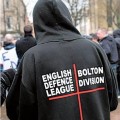
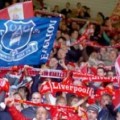

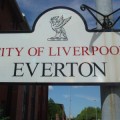

 SABOTAGE
SABOTAGE



